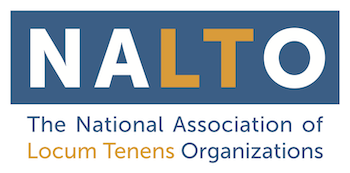Locum tenens is an exciting and rewarding experience. Latin for ‘to hold the place of’, locum tenens workers are, in effect, temporary health care providers utilized to supplement a facilities existing medical staff. When a private practice, hospital, or health care facility is in need of temporary workers, they call healthcare staffing agencies or locum tenens companies to place temporary workers. A healthcare facility may find themselves in need of a locum tenens provider if a staff doctor takes an extended vacation, is on maternity leave, is out sick, is terminated or otherwise requires addiontino providers to address growth and demand for services..
Locum tenens refers not only to physicians, but also includes nurse practitioners, physician assistants, or medical specialties. The industry was started in the early 1970’s out of a need to staff rural and medically underserved health care facilities in the Western US. Locum Tenens services has continued to advance as a necessary and accepted tool among physicians and administrators across the country to satisfy their short term and long term staffing needs. The success of the locum tenens industry is due in large part to the flexibility it provides for both physician and healthcare provider.
As providers and healthcare facilities alike consider locum tenens as a tool or resource to address their personal and professional needs for staffing, consideration should be given to individual objectives to ensure this is a good fit. The business of locum tenens is a service product that professionally manages resources to the extent objectives are realized by all parties. It is imperative to investigate the Pro’s and Con’s of locum tenens to determine it is indeed an appropriate resource or tool for you.
PRO: Travel
Locum tenens can be an adventure in more ways than one. Considering that all 50 states allow for locum workers, you can literally go anywhere you want as all types of health care facilities across the country are in need of temporary medical staffing. When working with a locum tenens company you have the power to choose where your next placement is located.
PRO: Flexibility
Nearly half of all physicians cite a flexible schedule as the best aspect of being a locum worker. Short-term assignments can benefit physicians that prefer to travel throughout the rural regions of the country helping those most in need, doctors that have familial and personal commitments where it is preferable to work in fits-and-spurts, or for seasoned practitioners that recently retired from their own practice but still want to continue practicing medicine on a part-time basis.
No matter your reason for preferring a non-traditional work schedule, locum jobs offer great flexibility and the type of control over your schedule that working as a full time physician typically doesn’t provide.
PRO: Good Pay
Compensation for locum tenens providers is based on recognized market rates by region for each specialty. Your experience and credentials also has a determining factor when negotiating your pay rate. Given that locum tenens work is, by definition, temporary and short-term, it is essential that physicians review and negotiate each contract before accepting a placement to ensure optimal and appropriate compensation.
PRO: New Learning Opportunities
If you’ve seen one healthcare facility, then you’ve seen one healthcare facility. In fact, no two facilities seem to operate the same and by gaining experience working in diverse heath care settings and under diverse administrative and managerial approaches to patient care, you can learn a tremendous amount about the business of providing healthcare.
In additional to learning different operational methods to medicine, locum tenen providers also have the opportunity to see a variety in medical cases. As you travel the country, especially if you opt to take placements in rural and underserved communities, then you gain exposure to diverse medical needs.
CON: Required to be Adaptable
As a locum worker you are a temporary, contract worker and only wedded to a healthcare facility for a specific period of time. As such, it is your responsible to adapt to each organization’s existing systems and infrastructure. This requirement is as much about attitude as ability – if you begin a placement expecting everyone else to adjust to your methods and preferences for seeing patients then you will be sorely disappointed.
CON: Autonomy
Humans are social animals with an innate need to make connections with others and fit in. While some will certainly appreciate the autonomy that comes with working independently and being able to leave once a contract has been completed, it can be hard after a while to lead a fairly transient lifestyle.
